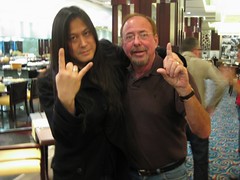Home Depot and
BestBuy were just two of the foreign companies in China that failed, while the consumer market is reaching record heights.
Shaun Rein explains what they were missing
in CNBC.
First, they get China's middle class wrong:
For one, Western brands need to understand there is no Chinese middle class in the American context. In the United States, the middle class tends to be a fairly static socio-economic group. People are born into it and their children and grandchildren tend to retain similar middle class habits like shopping atMacy's, driving Ford cars and visiting the Disney theme parks during vacations.
In China, however, the habits of the middle class are often described as anything but static. With many rags-to-riches stories doing their rounds across the mainland, many believe they, or their offspring, can also be wealthy. This optimism mirrors the conditions American Baby Boomers grew up in during the post World-War II era.
Even more complicated: Chinese want to be wealthy rather than middle class, avoiding typical middle class brands.
In CNBC Shaun Rein adds two more pitfalls.
Shaun Rein is a speaker at the China Speakers Bureau. When you need him at your meeting or conference, do get in touch.
Labels: BestBuy, China, China Speakers Bureau, consumers, Home Depot, Shaun Rein
 Shaun Rein by Fantake via Flickr
Shaun Rein by Fantake via Flickr









































